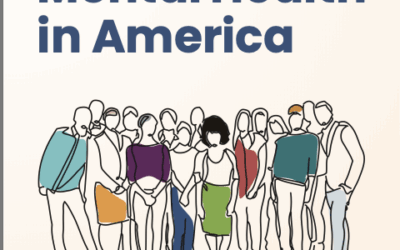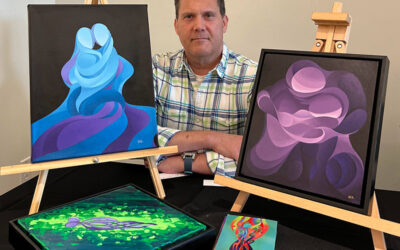Connecting Our Communities with Medical-Health Professionals
We need medical-health professionals. We appreciate medical-health professionals. Necessity and appreciation are only possible if we know how to access medical-health services. More medical-health professionals need to know how to reach and speak with us. This means patient advocacy that is aware of our cultures and respectful of our cultures. This also means medical-health professionals capable of using non-medical language, when possible, to explain health conditions and health services. The goal is to connect and understand.
That is why more medical-health professionals need to be invested in cultural awareness—being more visible in our communities and form relationships between communities and providers of health services. This is more than merely telling us to go to the doctor. We are more willing to go to the doctor if medical-health professionals attended community events and engaged in face-to-face, eye-to-eye conversations with people who are potential patients. We want more medical-health professionals to treat patients the way they, themselves, would want to be treated if they went to the doctor and the way they want their family treated.
This starts with how undergraduate and graduate medical-health students are taught and trained in every course and how medical-health professionals are trained throughout their careers. There is a need to continuously teach medical-health students and medical-health professionals about the cultures of different groups of people and how cultures influence health conditions, access to health services, health treatment received, and results of health treatment. In other words, there is no “quick fix” and “one size fits all” for many health conditions. We want medical-health students and medical-health professionals to understand this and be able to handle accordingly.
Our cultures impact how we interpret our mental-physical thoughts and feelings, whether we trust health-medical professionals, and how we feel about the possibility of being diagnosed with an illness. Therefore, culturally aware patient advocacy is important.
We need to be able to speak with medical-health professionals about our health. This includes whether we need to rely on prescription medication or we can improve our health by eating healthier, walking or other type of exercise, meditation/yoga, and other non-medical approaches. It might also be the case that people need to incorporate both prescription medication and a healthier lifestyle. Patients need to be able to ask medical-health professionals when, if possible, the prescription medication will not be needed if the healthier lifestyle has been incorporated. This is important because not only does relying on prescription drugs increase profit for pharmaceutical industry, it results in reliance and addiction for some people. One example is African-American addiction to prescription drugs, including opioid, that has been overlooked for years and needs more attention (https://www.usnews.com/news/healthiest-communities/articles/2018-12-21/black-america-hit-hardest-by-opioid-epidemic-in-2017 ; https://www.theguardian.com/us-news/2018/apr/28/opioid-epidemic-selects-white-victim-black-addict).
Something to consider is the connection with housing conditions, city design, access to health services, and health outcomes. Lower income parts of cities are predominantly African-American and non-white Hispanic and have less access to healthy food options and reasonably priced and culturally conscious medical resources. Our communities want to learn about health and everyday experiences such as how to eat healthy when we have a busy schedule. Healthy eating can be difficult in communities with less access to fruits, vegetables, and other healthy options. Some cities are making improvements to urban farming, community gardens, and natural health programs. More medical-health professionals need to get involved with communities and learn culturally aware nutrition which is healthy eating that does not remove cultural foods and preferred food seasoning. Examples include “healthy soul food.” This is culturally aware and does not require everyone to conform to foods and recipes considered “healthy” by a predominantly white medical system with predominantly white nutritionists.
Culture includes many factors that influence individual identities and thoughts and group identities and thoughts. Seeing, and hearing support for, symbols that represent racial divisions and under-representation of African-Americans, also contributes to our perspectives, experiences, and cultures. Mental health and physical health can be strongly influenced and shaped by constant reminders of historical injustices and ongoing injustices.
To address trauma, Post-traumatic stress disorder (PTSD https://www.nimh.nih.gov/health/topics/post-traumatic-stress-disorder-ptsd/index.shtml) was originally used in response to military trauma. In recent decades, PTSD has been extended to domestic violence, community violence, and pregnancy (example: https://www.ncbi.nlm.nih.gov/pmc/articles/PMC4134929/), and poverty (https://www.nctsn.org/sites/default/files/resources/resource-guide/understanding_impact_trauma_urban_poverty_family_systems.pdf). PTSD has also been applied to Trans-Atlantic slavery, Jim Crow, and other racial injustices that particularly harm African-Americans/Blacks/African descendants (examples: https://www.bwhi.org/2017/07/31/black-women-ptsd-know-ptsd/ ; https://blackdoctor.org/492491/invisible-man-black-men-ptsd/). Possible genetic links for PTSD (examples: https://www.ncbi.nlm.nih.gov/pmc/articles/PMC2680188/) can partly explain how families and cultures can be traumatized even if individuals, themselves, did not experience the traumatic event (example: https://www.cnn.com/2017/04/25/health/ptsd-trauma-genetics-study/index.html.
Medical-health professionals need to understand how African-Americans’ individual health concerns can be influenced by African-American cultural identity, a cultural identity that is disproportionately represented in lower income food deserts with resource scarce schools and high rates of certain types of crimes. Without this understanding, medical-health professionals cannot be culturally aware patient advocates with the ability to capture cultural contributors to health conditions and health outcomes. We appreciate medical-health professionals who want to understand this and want to learn more. We appreciate medical-health professionals who attend community events. We appreciate medical-health professionals who reach cultures and communities that are less trusting of medical-health professionals and less likely to go to the medical doctor. Increased visibility improves relationships, builds trust, increases health awareness of community members, and increases cultural awareness of medical-health professionals.
Dr. Kimya N. Dennis is an educator, researcher, consultant, and community advocate specializing in mental health, suicide and suicidal self-harm, law enforcement, criminal justice system, sexual health and freedom, and reproductive health and freedom. This captures contributing demographic and cultural factors, demographic and cultural identities, and legality and illegality. The general population is reached with emphasis on under-served and underrepresented individuals, communities, and cultures.
Contact: www.kimyandennis.com ; kimya@kimyandennis.com



